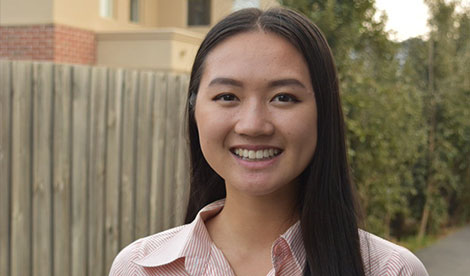

Blog

Extraordinary expectations
Monday August 10, 2020
I’ve always known that to have a career in medicine, you had to be extraordinary. We are reminded of this time and time again, even before beginning the journey as a future doctor.
Whilst braving year 12, we couldn’t just focus on having a perfect Australian Tertiary Admissions Rank (ATAR) score. We also needed an outstanding Undergraduate Medicine and Health Sciences Admission Test (UMAT) score as well an interview that stood out from all the other thousands of applicants.
From the beginning, we are told that we have to be extraordinary to be a part of this profession. As we grow up, we are taught that being extraordinary means doing more and being more. More than your fellow person. More than you should expect from yourself. Maybe even more than you are able to endure.
In the past couple of years, I have come to realise that no medical student is just a medical student and no doctor is just a doctor. Almost every person I know in this profession has at least one other commitment outside of just being a medical professional.
This is incredible, especially considering how much time and dedication being a doctor already requires. There are doctors who volunteer in advocacy groups to serve their colleagues, medical students who work with student societies that focus on all different aspects of health, and tutors who manage to balance families, a full-time job, and teaching a class of students every week. It is difficult to imagine where they might find time for themselves.
Hence, too often, we can find ourselves overworked, exhausted and far too burnt out to be productive in our studies or to provide quality care to patients.
We need to prioritise our own health and wellbeing. Taking the time to play a sport, having a hobby or just spending time alone reading or meditating can have a huge positive impact on our mental health and motivation levels. If we can take just a little bit of time out of each day to do something for ourselves, we can have a chance to refresh and have a clean slate for a new day or a new problem.
Furthermore, we have a responsibility to one another to make sure that our fellow students and colleagues are okay. Sometimes it’s difficult to realise when you are pushing yourself too hard and you need somebody to be there to say, “that’s enough”, or “when was the last time you took a break?”.
I am only in my preclinical years of medical school, but I can already feel the weight of the expectations placed on myself and my fellow students to somehow be extraordinary and always go the extra mile.
It is great to have ambition and to want to do more, and this is something that is instilled in us from the beginning. However, it cannot come at the cost of all the other aspects of our lives. Our hobbies, our family and friends, and our downtime are crucial to maintaining a healthy balance between our work and personal lives.
Furthermore, I think it’s important to realise, especially in our profession, that it’s okay to not always be working on something; it’s okay to not be the best all the time and it’s okay to do something for yourself. Even though we may have been encouraged against these notions through the way we started our journeys, it is important to realise that this mindset is not sustainable if we are to successfully continue on our journeys.
We have the opportunity now, especially as students, to learn our limits and push our boundaries so that when we enter the workforce, we know when we have to stop. Now is the time we have to learn to take care of ourselves so that in the future, when we have even more responsibilities, we don’t find ourselves burning out.
It can be a challenge, but it is only by finding the right balance between all the other aspects of our lives, that we can truly be extraordinary doctors.

